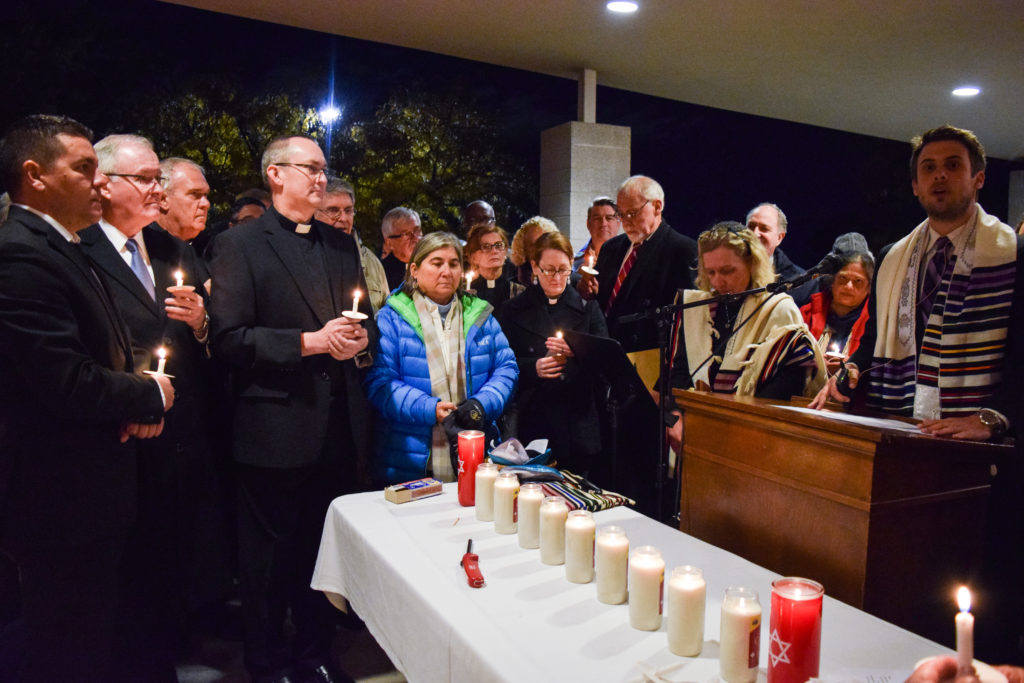
Editor’s note: This story pairs with “BYU students of other faiths learn tolerance through marginalization” and “My experience being Jewish in America today.”
Hundreds of members and allies of Salt Lake Jewish Congregation Kol Ami honored the 11 people who were killed Oct. 27 while attending services at the Tree of Life synagogue on Oct. 30.
On Oct. 27, a man entered the Tree of Life synagogue in the Squirrel Hill neighborhood of Pittsburgh, Pennsylvania, and opened fire. The shooter killed 11 people and injured six, according to The New York Times. Anti-Semitism is currently at an all-time high in the United States, according to The Guardian.
While the shooting in Pittsburgh was possibly the deadliest act of anti-Semitism in the history of the U.S., according to the Anti-Defamation League, many other acts of anti-Semitism have occurred throughout recent years, including acts of violence and vandalism.
The Anti-Defamation League is an international Jewish non-governmental organization that fights anti-Semitism. The league identified 1,986 anti-Semitic incidents in the U.S. in 2017, up 57 percent from 1,267 in 2016. The league also reported a major increase in anti-Semitic online harassment.
According to the Anti-Defamation League, anti-Semitic incidents on college and university campuses in the U.S. nearly doubled in 2017, rising from 108 to 204 in 2016.
At K-12 schools, 457 anti-Semitic incidents were reported, including swastika graffiti and playground bullying.
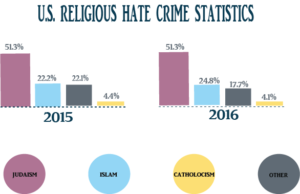
“A few days before the shooting in Pittsburgh, the Jewish Community Center I grew up attending was vandalized with swastikas and anti-Semitic slurs,” BYU graduate student Alexis Matt said. “This has happened frequently over the past few years, but every year it seems to get a little worse.”
In a June email sent to members of Salt Lake City Jewish Congregation Kol Ami, president Boaz Markewitz informed members of three anti-Semitic incidents against the congregation.
Markewitz said the congregation’s rabbi was impersonated on Instagram and the fake account posted anti-Muslim content. The congregation also received a short, but angry telephone call, and an email threatening the synagogue.
“Jewish institutions regularly receive threats by email and telephone, and Kol Ami is no exception,” the letter states.
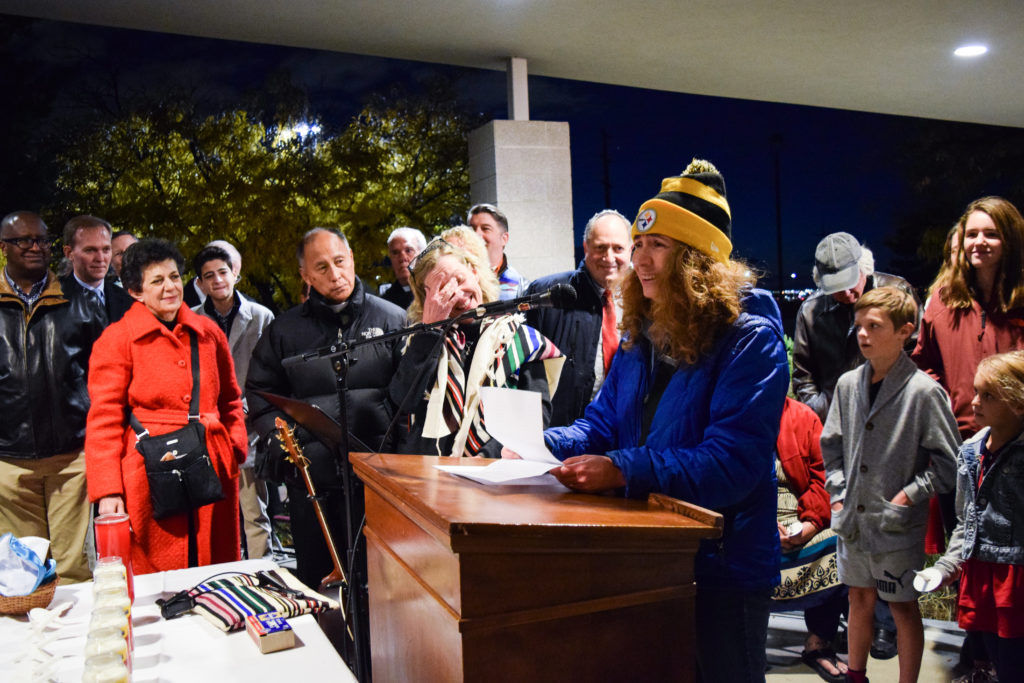
In a press release sent out after the shooting in Pittsburgh, Rabbi Samuel Spector of Congregation Kol Ami said people shouldn’t remain silent about the shooting and similar tragedies.
“We will not stop fighting for others,” Spector told the hundreds of people gathered at Congregation Kol Ami for an Oct. 30 vigil in remembrance of the victims.
“Those that have tried to eliminate us are no longer here, but we still are,” he said.
According to CBS News, on June 10, 2009, a gunman who had anti-Semitic writing in his car killed a security guard while trying to enter the U.S. Holocaust Memorial Museum. Holocaust Memorial Museum Director Sara Bloomfield told CNN the victim, Stephen Tyrone Johns, “died heroically in the line of duty.”
CNN reported that on April 13, 2014, Frazier Glenn Miller Jr. fatally shot a 69-year-old man and his 14-year-old grandson at a Jewish community center in suburban Kansas City, then killed a woman at the nearby Village Shalom retirement center.
“That (man) absolutely knocked a family to its knees for no reason,” Will Corporon, the son of one of the victims, told CNN.
The El Paso Times reported that on June 25, vandals spray-painted and tagged grave sites, and the driveway and walls of B’nai Zion Cemetery in El Paso, Texas.
“Although it grieves me to deliver this message, it is important that we remain strong and united in the face of hatred such as this,” B’Nai Zion Congregation President Shane Lipson posted on Facebook in response to the incident.
CNN reported that on Oct. 31, four days after the attack in Pittsburgh, anti-Semitic slurs were found spray-painted on the front wall of Beth Jacob Congregation of Irvine synagogue in Irvine, California.
“Anti-Semitism cannot be acceptable in this country. It will not be ignored in Irvine,” Mayor Don Wagner said of the vandalism. “We will (continue) to do everything in our power to condemn anti-Semitism and to protect Irvine’s Jewish community and also everyone of any race, religion or ethnic background in this city.”
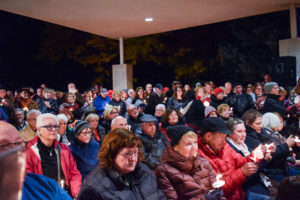
According to USA Today, on Nov. 1, five days after the attack in Pittsburgh, graffiti that read, “Kill All Jews” was found inside Union Temple, a synagogue in Brooklyn, New York.
“Children go to school here. This is the vilest kind of hate,” New York Mayor Bill de Blasio tweeted about the incident. “Union Temple is stronger than this. Brooklyn is stronger than this. We will fight anti-Semitism with every fiber of our being.”
According to an article posted by the BBC in September 2017, anti-Semitic cards started appearing inside the mailboxes of the houses in the Squirrel Hill neighborhood in Pittsburgh, Pennsylvania — the same neighborhood where the majority of the members of the Tree of Life synagogue resided.
“One side had a woman smiling next to a swastika. A message, ‘It’s not illegal to be White … yet,’ and the image of a noose had been printed on the other. At the same time, stickers were found on benches in a nearby public park, saying ‘White People Rock!'” BBC news reporter Hugo Bachega wrote in the article.
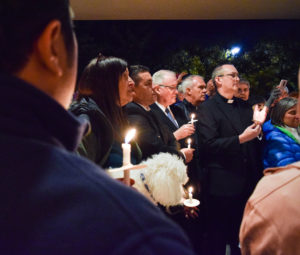
Spector said people in and outside of Judaism should remember that perpetrators of violence, such as the attack in Pittsburgh, have a goal to make Jewish people feel unsafe and that an attack on one synagogue is an attack on “all of us.”
Leaders of Jewish congregations across the nation are pleading with their members to stay strong. Rabbi Spector said to members of his own congregation “hazak, hazak, v’nitchazek,” or “Be Strong, Be Strong, Let us be Strengthened.”




